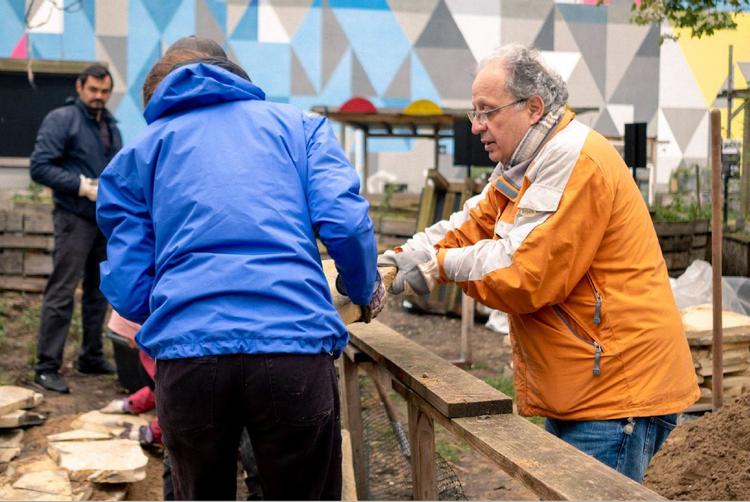Content Blocks
BeeWild
The Austrian initiative BeeWild, founded by Frutura CEO Manfred Hohensinner, has long been a driving force in promoting biodiversity, species and disaster protection, as well as sustainable food production. With pioneering projects such as the 10:1 model, BeeWild supports farmers in making the transition to environmentally friendly, modern and high-yield agriculture. By protecting bee pastures, the initiative also empowers both private individuals and companies to play an active role in shaping a better future. In 2025, thanks to the support of ARCOTEL Hotels, BeeWild will create four hectares – equivalent to 40,000 square metres – of wild bee pastures. By taking on the role of species protection patron, the Austrian hotel group is embracing responsibility and, together with BeeWild, sending a powerful message in favour of sustainable species conservation.
To BeeWild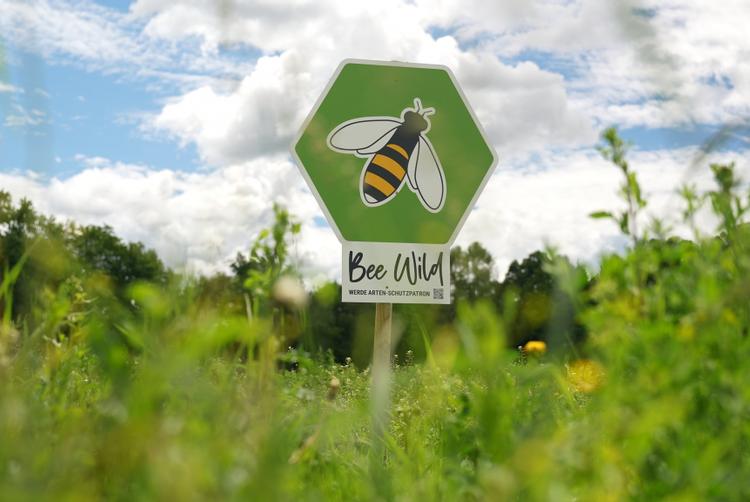
Museum of Natural History Vienna
The Sandberge Oberweiden nature reserve in eastern Lower Austria is one of the most important habitats for wild bees in Austria. In 2018/2019, researchers from the National Museum of Natural History rediscovered a small species of sweat bee, Halictus tectus, which had been thought to be regionally extinct. They also found, however, that species diversity has declined by over 50% since a broad survey by Austrian bee researcher Bruno Pittioni that was carried out in the 1930s and 1940s. A total of 164 species that had previously occurred at the site have not been seen after 1966. A key reason for the disappearance of many species appears to be the qualitative change of the steppe grassland in the area, which is increasingly grassing over, i.e. has fewer flowering species, and exhibits an altered floral composition compared to the past. Concrete data on the change in plant populations remain outstanding, however.
The aim of our project is to find out which species of plants were used as nectar and pollen sources by wild bees in the past, especially by those species of bee that have since become regionally extinct. It is fortunate that Bruno Pittioni’s historical collection still exists and that he didn’t “clean” the bees the way many earlier collectors did, so traces of the pollen they had collected at the time can still be found. This pollen can be genetically analysed to identify the plant species that should be cultivated in the nature reserve in the future.
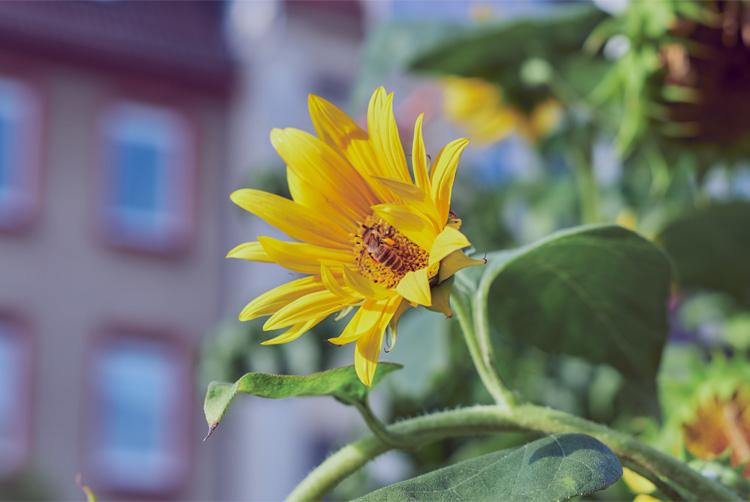
Mellifera
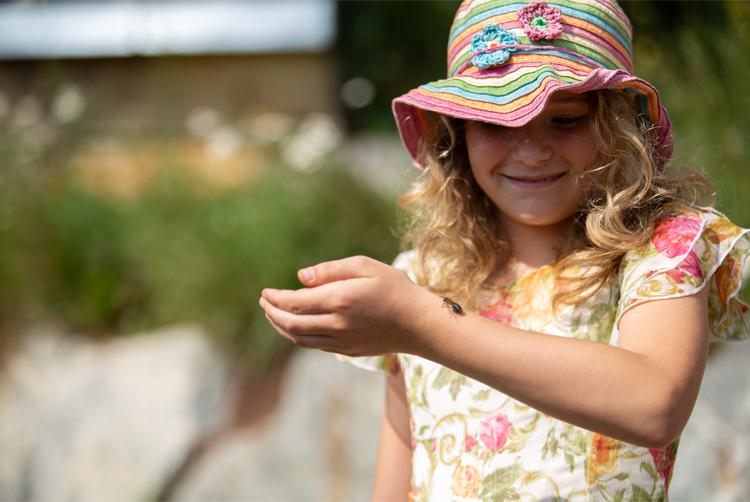
Honeybee sponsorship at Vienna Zoo
The oldest zoo in the world, part of the Schönbrunn Palace and Gardens UNESCO World Heritage Site, attracts around two million visitors every year. The zoo has a reputation for its nature and wildlife conservation projects, which it supports with research, workshops and informational events. Bees are also in the spotlight at the zoo, which maintains a special bee exhibit where visitors can learn more about the usefulness of bees and what can be done to protect their populations. Our honeybee sponsorship keeps the bee exhibit running.
To The Vienna Zoo Schönbrunn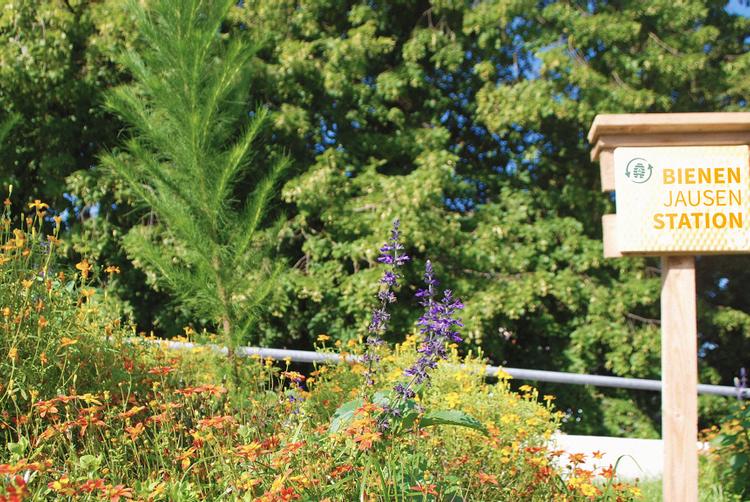
Project 2028 – Hektar Nektar
The Hektar Nektar project takes a unique approach to fighting bee decline by helping first-time beekeepers get off the ground. Beekeepers are important to increase bee populations worldwide, but getting started is often difficult due to the high start-up costs involved. This is where Hektar Nektar comes in, by sponsoring (certified) beekeepers to cover the costs of their first colony and the necessary equipment.
To the project Hektar Nektar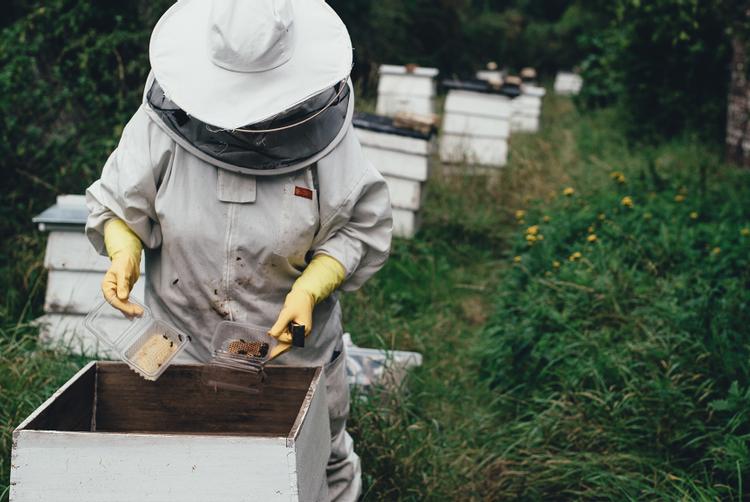
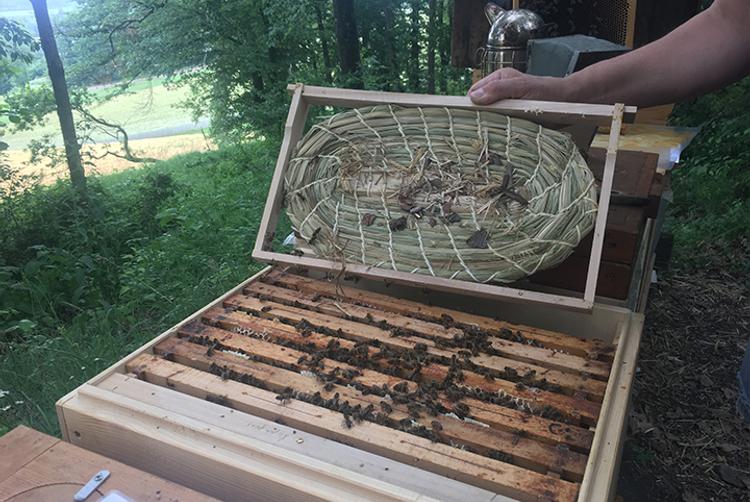
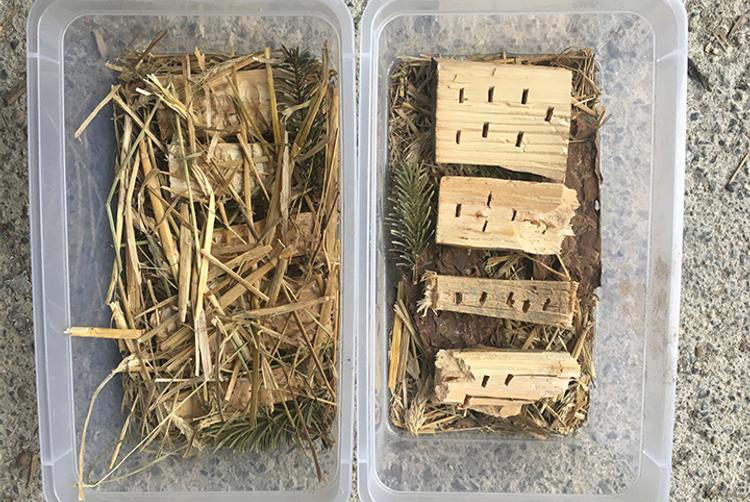
School Bees in Hamburg
Several studies in recent years indicate a significant decline in children's interest in nature and environmental topics. Especially in cities, there is often a lack of direct connection and experience with nature. However, the "School Bees" project aims to change that: Beekeeping is now part of the curriculum at a school in Hamburg. The school receives beehives on its premises, and teachers undergo professional training by beekeepers. This allows students, under guidance, to experience bees up close, learn about bee-friendly plants, and gradually develop an ecological understanding.
more information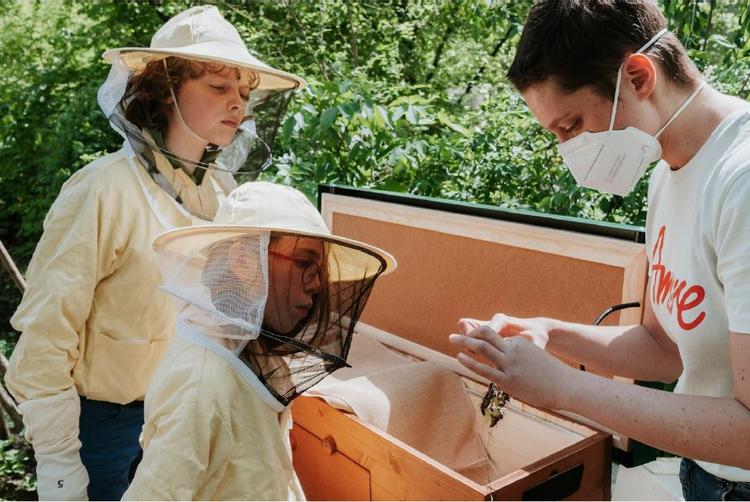
MORE Garden in Berlin
People with lower income and/or immigrant backgrounds often have less access to education and employment. The Mehringplatz neighborhood in the heart of Kreuzberg is considered the poorest district in Berlin with a very diverse social structure. In the midst of this neighborhood, Stadtbienen is creating a small oasis. Together, raised beds are designed, bee-friendly plants are cultivated, ecological knowledge is imparted, and at the same time, a social network is established. More than 200 people can participate in workshops and meetings for free, expanding their knowledge of environmental and bee protection.
Project Details